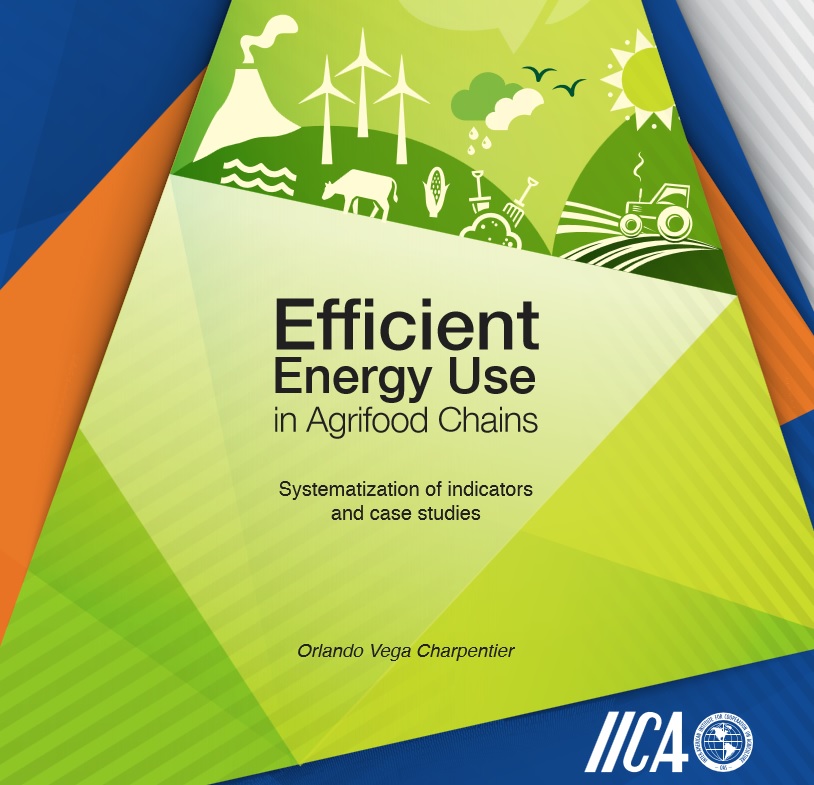The publication, produced by IICA, was launched today in the context of the Seventh Latin American and Caribbean Energy Efficiency Seminar held in Uruguay.

San Jose, April 27, 2016 (IICA). Increasing productivity levels and competitiveness through efficient use of energy sources and achieving sustainability of production systems is the aim of the new publication entitled “Efficient energy use in agrifood chains” produced by the Inter-American Institute for Cooperation on Agriculture (IICA).
The book was formally presented today at the Seventh Latin American and Caribbean Energy Efficiency Seminar, which is taking place in Montevideo, Uruguay. For the first time, the event is being attended by representatives of the agricultural sector, and has been organized jointly by the country’s Ministry of Industry, Energy and Mining (MIEM), the Latin American Energy Organization (OLADE) and the Regional Office for Latin America and the Caribbean of the United Nations Environment Program (UNEP).
The book contains a systematization of methodologies for the efficient use of energy and seeks to address the challenges and opportunities afforded by agriculture, such as cutting emissions of greenhouse gases, promoting sustainable soil use, reducing the carbon footprint and promoting the effective management of renewable energy sources.
“The objective is to know how to make efficient use of natural resources – whether we are talking about energy, water or soil. The book promotes a more efficient use of energy, because this has an impact on cost structures, is of great importance in production chains and provides economic, social and environmental benefits,” explained the author, IICA’s Specialist in Renewable Energies, Orlando Vega.
The book aims to strengthen capabilities for managing energy efficiency at different stages of the process of aggregation of value and to improve competitiveness, in the context of IICA’s Flagship Project “Competitiveness and Sustainability of Agricultural Chains.”
Because of its versatility in terms of energy, the agricultural sector is a major source of inputs for producing other energy products. Furthermore, it is an end consumer of usable energy, which, in turn, plays a key role in food and nutritional security.
“Energy is a universal input that is needed throughout each stage of the agricultural chain, from the seed to the research; in every development of new varieties and in genetic improvement, energy is implicit,” concluded Vega.
More information: orlando.vega@iica.int
Book: Efficient energy use in agrifood chains
Orlando Vega’s presentation in the Seventh Latin American and Caribbean Energy Efficiency Seminar











